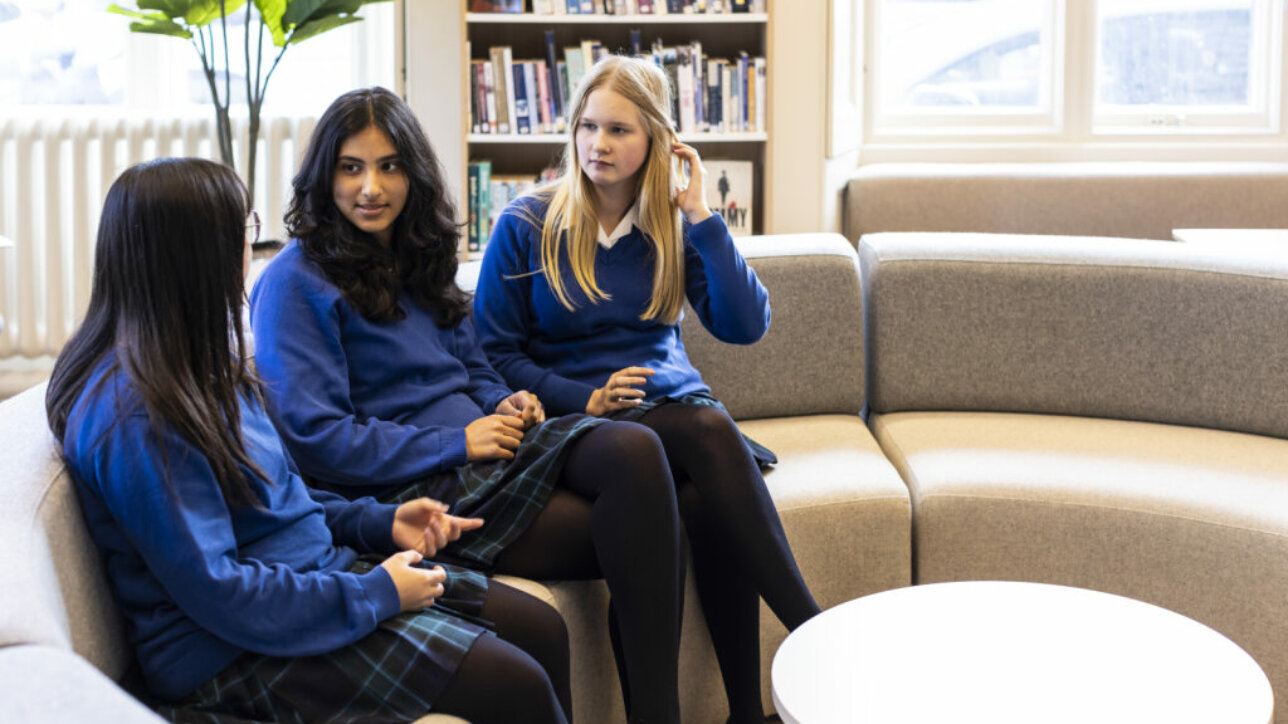In schools, the way we approach behaviour conveys the lessons we most want our young people to learn about how to engage with the world around them. A transactional model in which rules are enforced through a system of rewards and punishments assumes that compliance is the goal and control the mechanism. While this may deliver short-term ‘order’, it rarely encourages self-regulation, empathy, or a sense of genuine belonging. In contrast, a relational approach prioritises human connection, accountability, and learning through reflection. It asks not “What rule has been broken?” but “What has happened, what is the impact of my choices, who has been affected, and what needs to be done to put things right?”
This year, we have introduced a new behaviour policy founded on relational practice, a model that places relationships, reflection, and restoration at its heart. It aligns closely with our core values of community, opportunity, kindness, and excellence, and seeks to build a culture of pride and commitment rather than compliance. It is an approach that views every interaction as an opportunity for learning and growth, grounded in the understanding that behaviour is a form of communication and that strong, trusting, positive relationships are the foundation for meaningful learning and lasting change.
The Principles of Relational Practice
Our policy rests on a set of key principles that shape both our daily interactions and our responses to challenge:
- Compassion and Consequences: Holding pupils to account within a framework of empathy and care. This balance reflects the understanding that growth occurs through both support and structure.
- Restorative Meetings: Facilitated conversations that allow relationships to be repaired, trust to be rebuilt, and understanding to deepen.
- Recognition and Strength Spotting: A deliberate focus on what is strong, not what is wrong. We actively seek and celebrate positive behaviours and the strengths that underpin them.
- Intrinsic Motivation: Encouraging pupils to want to do the right thing, rather than simply comply with authority.
- Contribution and Belonging: Ensuring that every pupil feels a meaningful connection to the school community and a sense of shared ownership over its culture.
All staff have a vital and collaborative role in this process, not as disciplinarians, but as guides and mentors who re-teach, remind, and support pupils in making thoughtful choices.
Why Relationships Matter
Educational research consistently highlights that the quality of relationships within a school is the single most significant factor influencing both wellbeing and academic progress. Students who feel known, heard, and valued are more likely to engage meaningfully in their learning and to develop resilience in the face of challenge.
Behaviour is therefore not simply something to be managed, but something to be understood. A relational approach recognises that behaviour is a form of communication. When a pupil struggles, the question becomes not “How do we punish this?” but “What has led to this behaviour, and what support or learning is needed now?” When a pupil experiences a restorative conversation after an incident, they are guided to reflect on impact and intention thereby learning skills of emotional literacy and moral reasoning that outlast any detention. This reflective process supports internal regulation, which is the foundation of intrinsic motivation.
From Compliance to Commitment
At Kingsley, we are already seeing the early signs of cultural transformation. A committed staff body is engaging with the new ways of being and doing so that conversations have replaced confrontations and repair has replaced retribution. Our shared commitment to our community values of kindness, excellence, opportunity, and belonging drives our daily practices and we are reviewing our progress regularly to ensure we embed relational practice firmly into our culture.
The language of relational practice moves away from control and towards collaboration. The goal is that staff members act not as enforcers of rules, but as co-constructors of a respectful community. Relational practice requires time, consistency, and courage. It asks us to engage with empathy and pupils to take genuine responsibility. Yet, the reward is surely a stronger, more connected community where academic, social, and emotional learning flourishes.
The Challenge and the Reward
Implementing relational practice is not without challenge. It requires consistency, patience, and a willingness to re-teach expectations continually. But as we focus on learning rather than punishment, we model for pupils what genuine accountability looks like: thoughtful reflection, restoration, and renewed commitment.
Choosing connection over compliance reaffirms for us what education is truly about: helping young people understand themselves, take responsibility for their actions, and build relationships that allow everyone to thrive. Therefore, the lessons we teach through our policy and our subsequent actions mirror the values we hope our young people will emulate.

